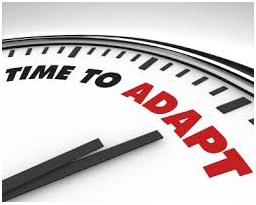Adjustment Disorders Causes, Symptoms, Diagnosis and Management

What Is An Adjustment Disorder?
Adjustment disorder is a short-term condition that occurs when a person has great difficulty coping with, or adjusting to, a particular source of stress, such as a major life change, loss, or event.
Since people with this disorder normally have symptoms that depressed people do, such as general loss of interest, feelings of hopelessness and crying, this disorder is sometimes known as situational depression.
Causes Of Adjustment Disorder:
Researchers are still trying to figure out what causes adjustment disorders. As with other mental disorders, the cause is likely complex and may involve genetics, your life experiences, your temperament and even changes in the natural chemicals in the brain.
Some events which trigger adjustment disorder include:
- Ending of a relationship or marriage
- Losing or changing job
- Death of a loved one
- Developing a serious illness (yourself or a loved one)
- Being a victim of a crime
- Having an accident
- Undergoing a major life change (such as getting married, having a baby, or retiring from a job)
- Living through a disaster, such as a fire, flood, or hurricane
Signs And Symptoms Of Adjustment Disorder:
There are numerous symptoms for adjustment disorder which include:
- Sadness
- Hopelessness
- Lack of enjoyment
- Crying spells
- Nervousness
- Anxiety
- Worry
- Desperation
- Trouble sleeping
- Difficulty concentrating
- Feeling overwhelmed and thoughts of suicide
Some behavioral signs of AD are
- Fighting
- Reckless driving
- Ignoring important tasks such as bills or homework
- Seeking approval from others by any way possible (cheating/lying/escaping reality)
- Avoiding family or friends
- Performing poorly in school
- Skipping school
- Vandalizing property.
Diagnosis Of Adjustment Disorder:
Adjustment disorders are diagnosed based on signs and symptoms and a thorough psychological evaluation. For an adjustment disorder to be diagnosed, several criteria must be met, including:
- Having emotional or behavioral symptoms within three months of a specific stressor occurring in your life
- Experiencing more stress than would normally be expected in response to the stressor, or having stress that causes significant problems in your relationships, at work or at school — or having both of these criteria
- An improvement of symptoms within six months after the stressful event ends
- The symptoms are not the result of another diagnosis
Treatment Of Adjustment Disorder:
Most people find treatment of adjustment disorder helpful. The treatment can be divided into psychotherapy and medications.
- Psychotherapy:
Therapy helps the person understand how the stressor has affected his or her life. It also helps the person develop better coping skills.
Support groups can also be helpful by allowing the person to discuss his or her concerns and feelings with people who are coping with the same stress.
- Medications:
Medications can help with such symptoms as depression, anxiety and suicidal thoughts. Antidepressants and anti-anxiety medications are the medications most often used to treat adjustment disorders.
If stopped suddenly, some medications, such as certain antidepressants, may cause withdrawal symptoms.
By : Natural Health News




